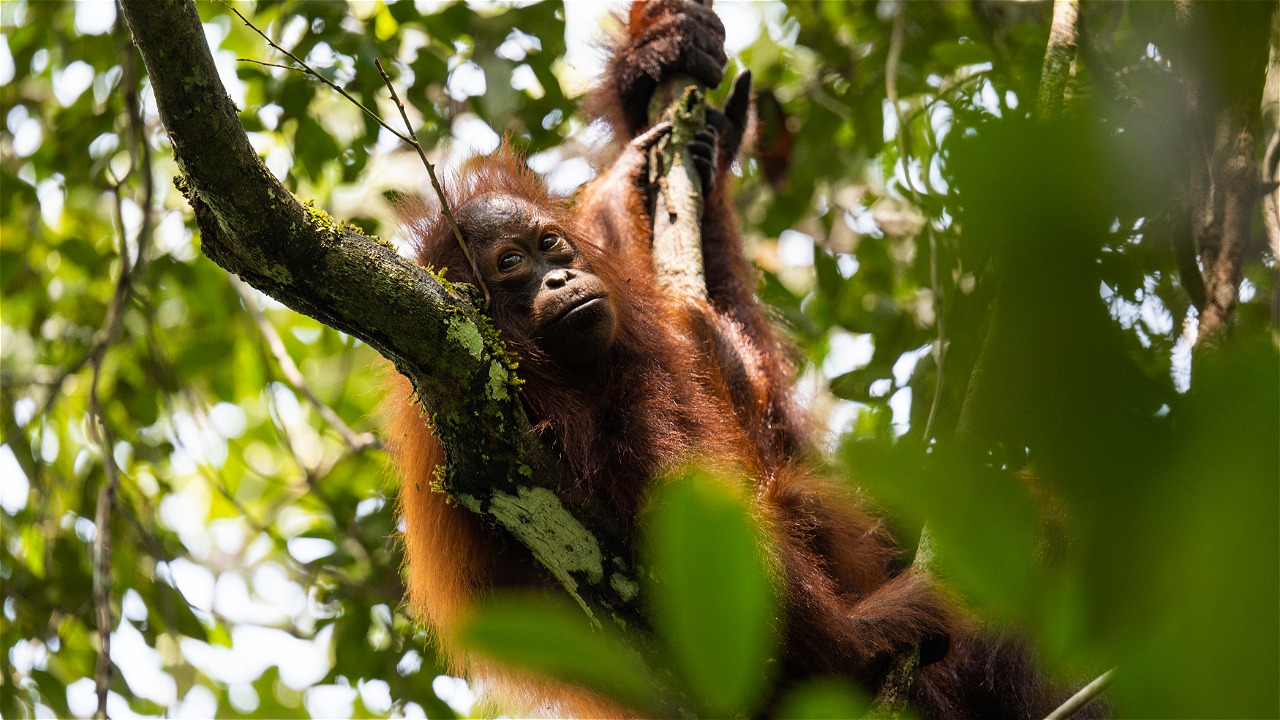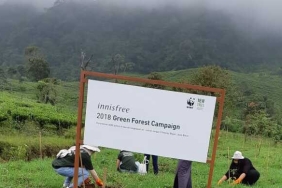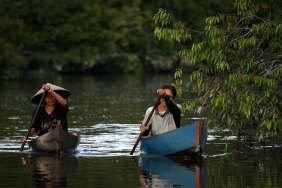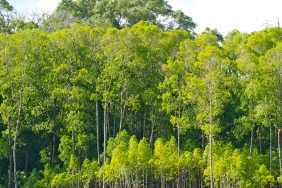STAKEHOLDERS BUILD ORANGUTAN CONSERVATION STRATEGY IN WEST KALIMANTAN
PONTIANAK (30/1) - In order to commemorate Indonesian Primate Day which falls every January 30, the West Kalimantan KSDA Center together with primate conservation activist partners held a Discussion on Building a Conservation Strategy for West Kalimantan Orangutans in Pontianak on Tuesday (30/1).
Among more than 600 species of primates (apes and monkeys) in the world, at least 58-59 species can be found in Indonesia. Unfortunately, Indonesian primates are threatened with extinction due to habitat loss and illegal trade. The primate trade is the most serious threat to primate conservation in Indonesia, after habitat destruction. More than 95% of primates traded in Indonesia are wild-caught. There are many primates that die in the primate trade process, including orangutans.
"It takes our collective concern to keep Indonesia's primates sustainable. In dealing with the trade in protected primates, the Government of Indonesia is very consistent and has made this one of the priorities included in the Ministry's Performance Indicators," said Director of Biodiversity Conservation, Ministry of Environment and Forestry of the Republic of Indonesia, Bambang Dahono Adji.
Currently, it is estimated that there are only 57,350 Bornean orangutans (Pongo pygmaeus) in 181,692 km2 of habitat (PHVA, 2016), covering West Kalimantan, Central Kalimantan, East Kalimantan, and Sarawak - Malaysia. In West Kalimantan, there are an estimated 4,520 individuals of the Pongo pygmaeus pygmaeus subspecies and 15,810 individuals of the Pongo pygmaeus wurmbii subspecies, distributed inside and outside conservation areas. In West Kalimantan, there are an estimated ± 20,330 individuals consisting of ± 4,520 Pongo pygmaeus pygmaeus and ± 15,810 Pongo pygmaeus wurmbii.
The existence of the only great ape on the Asian continent, based on 2016 IUCN data, is increasingly threatened. The status of two species, P. p. pygmaeus and P. p. wurmbii, rose from Endangered to Critically Endangered. This increase in status is due to habitat conversion and fires, as well as hunting. This became the main focus of discussion for orangutan conservation efforts in West Kalimantan.
"Parties are the main key to success in implementing orangutan conservation strategies and action plans. The collaboration of all parties is finally a part that cannot be ignored. How then can the orangutan protection plan in West Kalimantan in particular be developed and implemented collaboratively, so that the benefits can be felt by all parties," said Albertus Tjiu, West Kalimantan Program Manager, WWF-Indonesia.
The Head of the West Kalimantan KSDA Center, Sadtata Noor Adirahmanta, said that until now cases of wildlife crime are still high.
"In order to reduce cases of wildlife crime, especially orangutans, various parties were involved in this discussion. We need to work together and synergize. What kind of conservation strategy can we run together in the future," said Sadtata.
The meeting was a follow-up to the development of the West Kalimantan Orangutan Conservation Strategy and Action Plan (SRAK) held previously in October 2017 in Pontianak. The West Kalimantan Orangutan SRAK has not fully addressed the problems that continue to arise after it was formulated. The West Kalimantan KSDA Center together with WWF-Indonesia West Kalimantan Program invites all parties to care about orangutan protection and conservation.
"If solutions for orangutan conservation including other key biodiversity can be formulated, including considering aspects of improving the economy of local communities, we are sure that the pillars of conservation can be realized and benefit all parties," said Albertus.
A number of parties involved in the discussion included the UPT of the Ministry of Environment and Forestry of West Kalimantan Province, the West Kalimantan Provincial Forestry Service, the West Kalimantan Regional Police, related stakeholders; FMIPA UNTAN, village governments and communities from Mempawah, Kubu Raya, Sanggau, Landak, Ketapang Regencies, FOKKAB, NGOs engaged in orangutan conservation, as well as plantation partners whose concession lands contain orangutan habitat.
Still in the framework of Indonesian Primate Day, a public campaign was also carried out through a peaceful action at the UNTAN Digulis Roundabout involving various organizations and also the people of Pontianak City including Nature Lovers Students from various high schools in Pontianak City, Nature Lovers Students from various Universities, Biology MIPA Untan Student Association, Pontianak Earth Hour Movement, Kalimantan Climbing Community, Putusibau Youth Camp Leadership Alumni, WWF-Indonesia West Kalimantan Program, Titian Foundation, Planet Indonesia Foundation, as well as other supporting parties.
The moment of Indonesian Primate Day is used by conservationists and environmental activists to invite the community/public to help efforts to conserve Indonesian primates, one way is by not trading primates.
"One of the easiest ways for the public is by not buying primates. Keeping primates at home as pets is also prone to the transmission of diseases (zoonoses) such as tuberculosis, hepatitis and herpes. Letting primates live in their natural habitat is a wise choice that everyone can make for reasons of primate conservation and public health," said Dewi Puspita Sari, Species Officer, WWF-Indonesia.
Currently in West Kalimantan Province, primates, especially orangutans, in the IAR Foundation rehabilitation center are 110 individuals, while in the Kobus Foundation Rehabilitation Center there are 36 orangutans undergoing rehabilitation.
Titian Foundation, through Sulhani, said that this public campaign was carried out to educate the public not to hunt primates just for the sake of it.
"If there are still people who keep primates or even sell them either directly or through social media, please report to the West Kalimantan BKSDA to be rehabilitated and released back to their habitat," said Sulhani.
This multi-stakeholder collaborative work is expected to realize wildlife conservation in West Kalimantan, especially primates.
-0-
For more information, please contact:
Y. Sudaryanti (Cooperation and Public Relations - Forest Ecosystem Controller)
West Kalimantan BKSDA
Jl. Ahmad Yani No. 121 Pontianak
PHONE: | Email: yanti1161975@gmail.com
Dewi Puspita Sari (Species Officer)
WWF-Indonesia West Kalimantan Program
Jl. Karna Sosial Gg. Wonoyoso II No. 3 - Pontianak
HP: 0821 4848 6784 | Email: dpuspita@wwf.id





